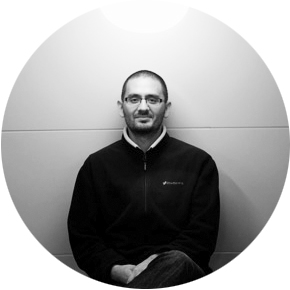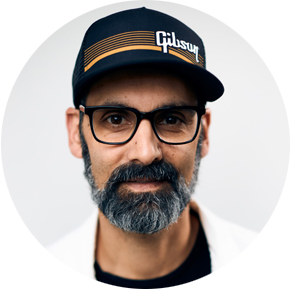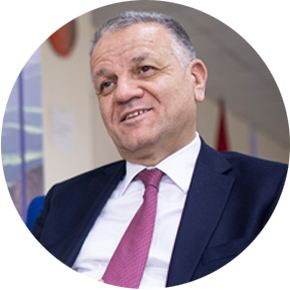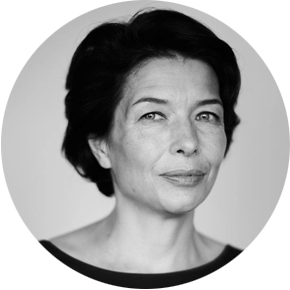Mediamax’s interview with Raffi Krikorian, Vice President of Platform Engineering at Twitter
- Raffi, you gave a talk at workshops and seminars organized by TUMO Center. Do you think that despite all the difficulties (including geographical and geopolitical) Armenia has a chance in the IT sphere?
- Absolutely. I think that the IT space is by definition decentralized. We work on communication and communication is supposed to be a thing that can’t go away.
- It’s no secret that the United States, particularly the Silicon Valley, is very attractive for software developers and engineers. What should be done to make these people stay in Armenia instead of moving to the US and develop their products here?
- Well, it’s easy to want to go to the United States where I’ll pay you a particular sum of money to work for me effectively. I think I’m in a unique situation where I can pay a lot of money. However, you still see a bunch of small and maybe becoming larger successes over here in Armenia.
People move to the Silicon Valley and then in a few years they leave because there aren’t a lot of opportunities, since there are already a lot of people working in the bigger companies. And on the other hand, there are a lot of opportunities, since there are millions of startups out there.
Here in Armenia people want to stay close to their families, they like their lifestyles. So if we can focus on just making the geography disappear, which is the goal of the Internet, then, of course, there is a chance, and of course, people will stay and there will be no reason to move.
- How do you feel in Armenia? Do you feel that this is your historical homeland?
- Last night, I was coincidentally talking about it to my wife (she is British) and I said there is just a combination of feelings like I belong and I don’t belong here.
I don’t live in Los Angeles or in Boston where there is a big Armenian community. I go to work in San Francisco and my family lives in Pittsburgh, Pennsylvania. However, I come here and people look like me, people speak like me (I don’t speak it well, but I understand it still from my childhood). So there is that weird sense of belonging because it’s weirdly familiar even though it’s not.
When I was growing up I went to an Armenian school every Friday night to learn history, culture and heritage, and walking around seems like you see those things. But at the same time I am an American citizen and I am fully aware that I have Armenian heritage.
- Do you think technology, social networks and Twitter make this world a better place?
- I think there are many challenges, and I think we are changing the world in the process. I can speak for Twitter specifically. I think Twitter’s job (we have many opinions on what Twitter’s job is) is to democratize the way we can all speak to each other. There is an artist who once said that the thing Twitter does is it flattens the landscape, it takes away all the buildings and borders, and what I can do is just see everyone I talk to and everyone I want. And I think it’s fundamentally a better place for us to live in. No one can tell anyone not to say anything and everyone has the right to say anything they want.
We are bound to get some stuff wrong, some stuff right. People criticize Google Glass these days as like it’s privacy invading so on. 20 years ago people would be like “oh- cell-phones-can-destroy-everything”, and there were huge articles on how the telegraph was going to destroy the world in the 1800s. So technology has this plain effect with the society but in general there are many ways that technology can make the world a worse place - nuclear weapons, for example.
I think the way the social media works, except for accidents, stealing data and hackers, it generally makes the world a better place. I feel more connected with my family because of Facebook and I feel like I can listen to the world through Twitter. These are generally good things.
- Many people say this advanced technology changes the whole essence of human communication. People do not talk to each other anymore, they follow their friends on Facebook or Twitter, learn how they are doing via their posts and thereby find it unnecessary to meet and talk in person.
- It’s absolutely not true. My best friend in the world lives in Seattle and I live either in West Coast or San Francisco. I see her, if I am lucky, three times a year. I have a familiar sense of how her world is going, so when we see each other, we go right back to where we started because I already know generally what’s going on in her life. So, nothing supplants face to face communication and nothing supplements that kind of contact.
- There is an opinion that the very term “friend” thatis used on Facebook distorts the true meaning of friendship.
- I think Facebook and others (I won’t just blame it on Facebook) have overused the term “friend”. I think if I talk to an intelligent person, they know what the difference between a friend and a “Facebook friend” is. We just accidentally use the same word. And yes, it partially demeans it.
There is a comment that Eskimos in Alaska use 64 words for “ice” and we just say “ice”. I think as long as we are conscious of it, we can manage this.
- Can you spend a day without a mobile device or Internet?
- I would love to spend a day without a mobile phone or Internet. My wife makes me do this whenever I go on vacation. Yes, I think it’s absolutely possible, and I think it’s probably a healthy thing to do once in a while. In fact, I would say people are too connected in a bunch of different ways and I think they should manage quality over quantity. We have to make sure we have high value and really good connections.
- There is a lot of concern about privacy. People think that by going public on social networks they lose their privacy. Do you think some balance can be found here, or if one decides to go on Facebook or Twitter they by default give up on privacy?
- People don’t realize that when they are saying something on Facebook or Twitter, that information is leaking effectively to the world. So I actually do think we need to give some better education to people on how to interact over this new media. I think that’s exactly what happened with the cell-phones and e-mails. Do you remember people say don’t hit the “reply all” button on e-mail? The exact thing is happening with this media. And I think it’s all on us to make sure that the society knows how to use them properly.
- Another concern refers to Wikipedia. People don’t read books as they know they can find the short summaries for millions of topics on Wikipedia.
- I think the main issue is the love of learning. One of the things my parents instilled in me when I was younger is that I love to learn things; whether I learn from books, from the Internet or by building something. I think we should most importantly make sure we instill the love of learning in everybody, and then adapt in the way the world is changing. I think people with love of learning will want to read certain things.
They may not want to read as much as previous generations, and it may not be okay, but I think, fundamentally, we shouldn’t be saying “oh, people have stopped reading because their intentions are going down” or something like that. The question is do people still love to learn, or have they become passive all of a sudden and are just digesting information?
- 10-15 years ago Presidents and Prime Ministers were regarded as the most powerful people in the world. Today many would say that the Vice President of Twitter is one of those powerful people. It is widely speculated that without this social media the world wouldn’t change much.Many claim that Twitter was one of the major components of the “Arab Spring”. Do you consider yourself powerful person in the modern world?
- Well, I don’t think of myself as powerful. Whenever people ask me if I love working at Twitter or when I am asked to talk to specifically engineers who want to come to work at Twitter, I tell them it’s amazing for two reasons.
The first is that it has some of the world’s hardest technical problems to be solved, making a platform an entire world can converse in public and in real time is incredibly hard. My work, as far as I can tell, will never be done. The second is that we work on a product that the world fundamentally cares about. We have changed the world, the way that people talk, we have toppled governments, we celebrate elections, when there is a natural disaster people rally, when people win the Olympics, something happens, the Futball World Cup will be amazing on Twitter, so like there is no other platform and there is no other opportunity to have both an incredibly hard technical challenge and fundamentally change the world.
So do I feel like one of the world’s most powerful persons? No. But I do think my team’s responsibility is to run around the world one of the most important platforms in the planet, so the way I phrase it to my team is it’s actually our responsibility to give the world the Twitter it deserves and it deserves one that’s always up, always accessible, always making communication democratic. It’s our job and we have the responsibility and the opportunity to do that. So if you think that’s power, then we could really screw this up badly, but I don’t choose to think of it as power, I choose to think of it as responsibility and opportunity to make sure this thing works.
Ara Tadevosyan talked to Raffi Krikoryan


























Comments
Dear visitors, You can place your opinion on the material using your Facebook account. Please, be polite and follow our simple rules: you are not allowed to make off - topic comments, place advertisements, use abusive and filthy language. The editorial staff reserves the right to moderate and delete comments in case of breach of the rules.